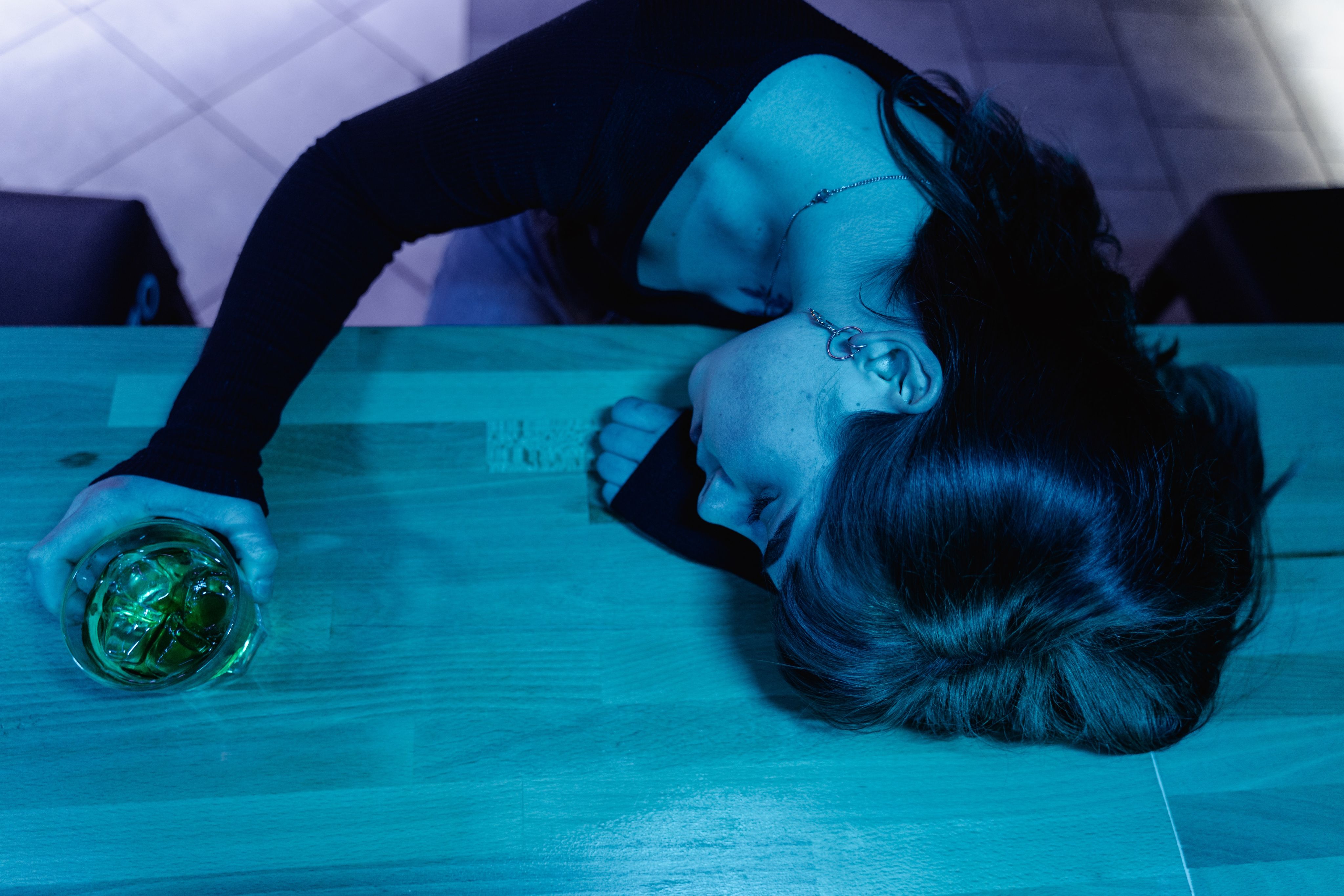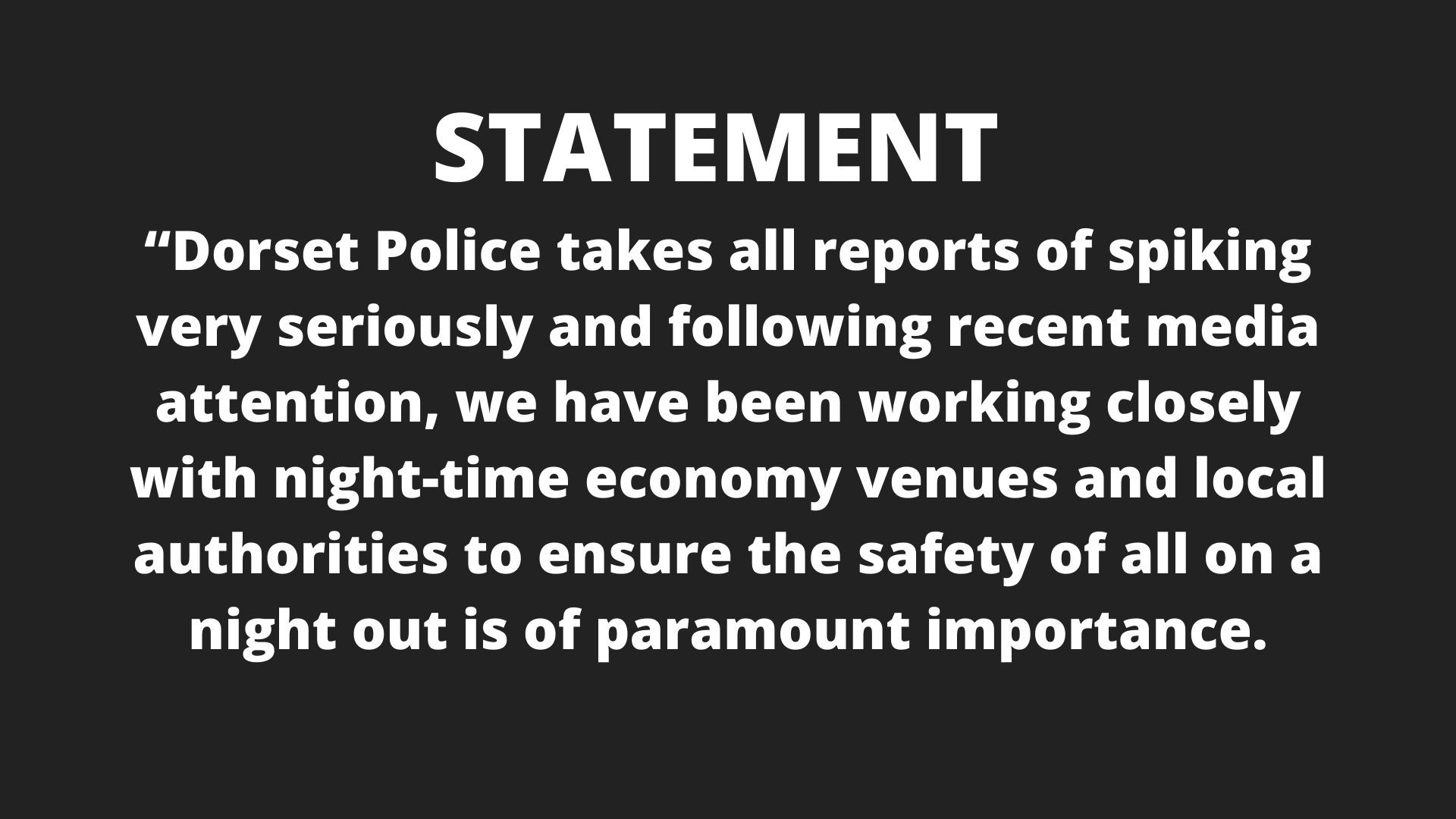Dorset's Spiking Shame
An exclusive BUzz News investigation

Spiking reports in Dorset have almost quadrupled since 2017, BUzz News can exclusively reveal.
Data revealed by Dorset police showed there were 101 recorded incidents of drink spiking in 2021, up from the 27 reported incidents in 2017.
Spiking can be incredibly difficult to prove and complications around identifying perpetrators is often cited as a reason why more suspected victims don't come forward.
In this investigation BUzz News speaks to a number of victims about their memories of events as well as hearing from leading campaigners and Dorset's former Police and Crime Commissioner.
Eve Partridge is a 20 year old student at Bournemouth University.
She believes she was spiked in a Bournemouth nightclub after going from "0 to 100" shortly after arriving. Eve describes herself as cautious and always very careful with her drinks and said "this is what makes it so scary".
On the night Eve's friends said she became "weightless" and "confused" .
Eve believes people can often dismiss claims of spiking and shift blame onto the individual. She said "that is what makes it even harder to speak up about these types of things because people just never always fully believe you."
Matt, 22, believes he was spiked on a night out in October. He studies sport management and only goes clubbing semi-frequently.
The incident took place less than an hour after arriving and Matt says he remembers very little from the night: his account is based on that of his flatmates who were with him at hospital.
He says he didn't report it to the police because he "didn't think (the Police) would do much about it".
It's believed around one in five victims of spiking could be male.
His experiences are voiced by an actor.
Lauren, 18, believes she was spiked on a night out with two of her friends in November. She remembers feeling faint, dizzy and throwing up in the club toilets. Lauren says she didn’t report it to the police because she “didn’t believe it was important (to the police)”.
Reflecting on the increase in the number of reported spiking incidents, Lauren said she wouldn't be surprised if the true number of incidents was 'much higher'.
She said: "The awful thing about (spiking) is that it's not surprising. The increase doesn't surprise me and it's abysmal that me and so many other young women and girls now just think it's normal and part of the risk of going out. It's not normal and more needs to be done."
Her experiences are voiced by an actor.
Grace, 18, says she's become "more aware" of her surrounding since suspecting she was spiked in November.
She recalled rushing to the toilet to throw up and said the experience left her feeling anxious about going out again.
Grace said: "I became more aware of what I would wear and how much I drank so that I wouldn't be in that situation again.
"(I made) sure that someone, especially a man, I trusted was stood behind me so that no-one could inject my back, for example. I felt like I was expecting everyone to have it out for me: even if they were simply trying to get past me in the club."
Sixty six out of the 101 cases reported to Dorset Police in 2021 resulted in no police action being recorded; just two saw an offender charged or cautioned.
Victims often suffer extreme memory loss as a result of being spiked. The nature of drink spiking makes it very difficult to know with certainty what happened unless the victim is able to provide a prompt blood or urine sample.
Martyn Underhill was Dorset Police's Police and Crime Commissioner from 2012 until May 2021. He previously worked as an Officer and Chief Inspector across a number of constabularies for 30 years.
He explained the key difficulty in drink spiking prosecutions.
Dawn Dines is the founder of StopTopps and the organisation Stamp Out Spiking.
She's been campaigning to raise awareness around spiking, specifically among university students, since 2005.
Stamp Out Spiking was founded as a non-profit organisation in 2019 and has previously appeared on Dragons Den promoting safety conscious clothing for clubbers.
Dawn said the 'tell-tale signs' of being spiked can include 'chattering teeth', 'feeling hot' and the 'loss of bladder control'.
In a statement, Dorset Police encouraged people to come forward if they suspect they've been spiked and issued the following advice:
We would urge people to take the following steps to help prevent you or your friends from becoming a victim:
• Never leave your drink unattended
• Don’t accept a drink from someone you don’t know
• Keep an eye on your friends’ drinks
• Stay away from situations that you don’t feel comfortable with
• If someone appears very intoxicated, do not leave them unattended or with a stranger, make sure they are safe

Male Victims of Spiking
Whilst spiking is predominately associated with having female victims, a recent conference at Bournemouth University highlighted statistics suggesting around 20% of spiking victims were male.
Martyn Underhill, Dorset Police's former PCC. said there were many reasons that men often didn't come forward.
Male Survivor Partnership stated "the biggest barrier for men is being believed and the myths that surround male sexual assault. Along with that comes shame and guilt. Also, men who are being assaulted can also experience arousal, which is very confusing. Particularly in terms of female perpetrators of forced-to-penetrate sexual assault. Often is not believed that a women can sexually assault a man."

